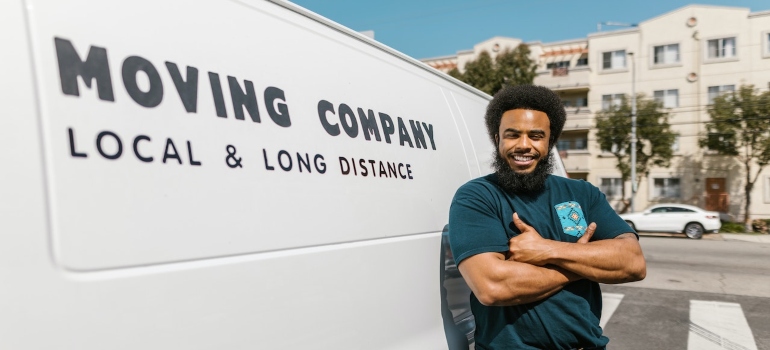Tips for Moving in Stages
Get an Instant Online Quote
"*" indicates required fields
Moving into a new home is thrilling, but let’s be honest, it can also be stressful and expensive. From hiring Georgia movers to buying packing supplies, relocation costs pile up fast. So, how can you reduce financial strain and avoid overwhelming chaos? One solution is moving in stages. By spreading your move over time, you gain control, save money, and reduce stress. Curious how it works and whether it’s right for you? Let’s explore.
Why Moving All at Once Can Backfire
Traditional moves often happen in a single, frantic weekend. Everything, from furniture to kitchen utensils, must be packed, loaded, transported, and unpacked in one marathon session. But does speed always save money? Not really. Rushed moves can lead to last-minute purchases, overpaying for movers, or even damaging items. When you face a tight timeline, mistakes are common. Boxes are overstuffed. Fragile items get scratched. And suddenly, what seemed efficient becomes costly.

What Is Relocating in Stages?
Relocating in stages means breaking your move into smaller, manageable steps. Instead of moving everything at once, you transport your belongings gradually, week by week or even month by month. This approach spreads out costs, gives you breathing room to organize, and allows smarter decisions about what to take with you. Think of it as upgrading your moving strategy: you stay in control, reduce mistakes, and protect your budget.
How Moving in Stages Benefits Your Wallet
Let’s talk numbers. When you move in stages, you can often use your own vehicle for some trips instead of renting a truck for a single weekend. Boxes, tape, and packing materials can be reused across trips, cutting supply costs. You may even avoid paying for storage units because you’re not overwhelmed with an entire household at once.
Small steps equal big savings. Plus, moving in increments prevents energy depletion, and you move without breaking a sweat. One marathon weekend of moving can leave you exhausted and stressed, which often leads to extra spending—takeout meals, impulsive buys, or last-minute rentals.
Planning Around Your Schedule
Staged moves work best when you have flexibility between your old lease and your new home. For example, if you have two weeks of overlap, you can gradually move items, clean the new place, and arrange furniture without pressure. Homeowners benefit, too. Moving in stages allows time to prep rooms, paint, or repair minor damage before everything arrives. This not only prevents last-minute service fees but also ensures a smoother transition.

Protecting Fragile and Valuable Items
One of the most overlooked advantages of moving in stages is reducing the risk of damage. Moving everything at once increases the likelihood of scratches, dents, or broken items. When you transport smaller loads, moving fragile items like lamps, glass decorations, or electronics will get the attention they deserve. Ask yourself: how many heirlooms or expensive gadgets do you own? Protecting them could save you hundreds or even thousands of dollars. Gradual relocation ensures that delicate belongings arrive intact.
Making Smarter Decisions on What to Keep
Ever pack in a rush and realize afterward that half the items you moved were unnecessary? Incremental moving gives you space to decide what truly belongs in your new home. You can donate, sell, or recycle items you no longer need. This approach reduces clutter and lowers costs. Fewer boxes mean less packing material, smaller truck loads, and ultimately, a leaner, more efficient move. Minimalism meets practicality.
Tackling Seasonal and Bulky Items First
When should you start? Many local movers in Marietta GA recommend beginning with items you don’t use daily. Think holiday decorations, winter clothes, or large furniture that isn’t essential yet. Moving these first frees up space at your current home and lets you experiment with your new layout. Handling large items early also prevents last-minute costs, like oversized moving equipment or storage rentals. By prioritizing in stages, you avoid paying extra when you’re already stressed.
Combining DIY and Professional Help
Not every stage requires professional movers. Heavy or complex items—appliances, pianos, and large furniture—benefit from expert handling. Smaller loads, personal belongings, and everyday essentials can often be moved by yourself. This hybrid strategy offers the best of both worlds: professional protection for sensitive items and savings where you can handle it. Think of it as selective outsourcing for a more budget-friendly move.
Stress Management Through Gradual Relocation
Moving is emotionally draining. Facing an entire household in one weekend can be intimidating. But when you relocate in stages, the process becomes manageable. Completing small stages provides a sense of accomplishment and reduces mental strain.
Avoiding Hidden Moving Costs
Hidden costs are the silent killers of moving budgets. Extra gas, last-minute rentals, takeout meals, and emergency supplies can quietly add hundreds of dollars. When you move in stages, you plan more effectively. You can schedule trips efficiently, borrow equipment instead of renting, and cook meals in your partially unpacked kitchen. These small adjustments prevent surprise expenses and keep your budget on track.
Moving a Business in Stages
The concept of moving in stages applies to businesses as well. Relocating an office or small business all at once can disrupt operations, confuse clients, and lead to costly downtime. By moving in stages, you can transfer departments, equipment, and files incrementally, ensuring daily operations continue smoothly. Start with non-essential items like archived documents or surplus furniture, then gradually relocate critical systems, technology, and staff. This approach reduces operational risk, minimizes lost productivity, and allows employees to adapt to the new space gradually—while still keeping relocation costs under control. However, don’t forget that hiring commercial moving companies in Atlanta GA, even when relocating in stages, is a smart decision.

When Moving in Stages Might Not Work
Are there situations where staged moving isn’t ideal? Yes. If you have zero overlap between properties or a strict timeline, gradual relocation may not be feasible. Long-distance moves also typically require everything to be transported at once, making incremental strategies less practical. Even in these cases, however, careful budgeting and smart planning remain essential. The principles of staged moving—prioritizing items, pacing tasks, and avoiding rushed decisions—can still help you manage costs and stress.
Stretching Your Budget with Incremental Moves
Ultimately, moving in stages is about control. It gives you the power to pace yourself, protect belongings, and make thoughtful decisions. Instead of feeling trapped in a single, stressful weekend, you spread the load, save money, and enjoy the transition to your new home. Incremental relocation transforms a potentially overwhelming move into a structured, affordable, and even enjoyable process. For anyone looking to balance efficiency, safety, and cost, this approach isn’t just smart—it’s essential. And don’t forget hiring moving labor in Atlanta when moving in stages also saves you money, and it saves you time and nerves, too.